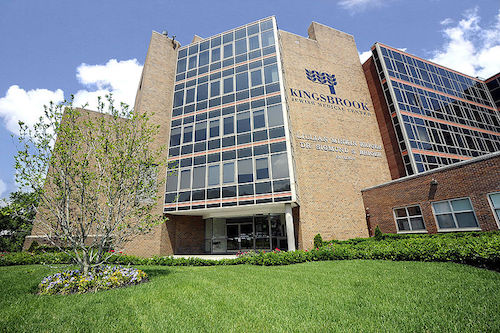Long Island Jewish Medical Center, the Northwell Health hub.
In Becker’s Hospital Review, Michael J. Dowling, President & CEO of Northwell Health, a big system in metropolitan New York, talks about community hospitals’ local identities after a big system has acquired them. Northwell has acquired six community hospitals since Mr. Dowling became president and CEO, in 2002.
He says, among other things:
“To me, a community hospital is the principal facilitator of healthcare in a specific neighborhood or metro area. Even though most healthcare is now delivered on an outpatient basis, many people in a given area identify healthcare with their local community hospital.”
“When a health system approaches a community hospital for an acquisition — or visa versa — the question to answer first and foremost is, ‘Can the health system help strengthen the community hospital?’ The goal in these types of relationships is to enhance the quality of care at the local hospital. Health system partners can facilitate that in various ways.”
“It is critical that the health system does not undermine the community hospital’s reputation or take away its local identity.”
Finally: “When acquiring a community hospital, the key is balance. Preserving the hospital’s local identity is important to its staff, providers and patients. Often, the hospital has long served as an emblem of the community and represents an important part of its heritage. But that doesn’t mean the health system can’t or shouldn’t make any changes. The cultures must adapt to fit together, and certain services the hospital offers may be amended. At the end of the day, all of these changes are intended to improve the quality of care at the community hospital while simultaneously strengthening the health system.”
To read the entire Becker’s Hospital Review piece, please hit this link.







